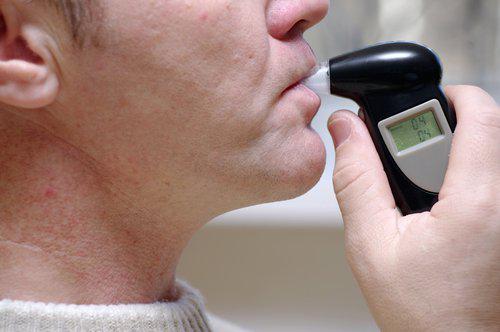Recent Blog Posts
New Challenge to the Informing the Accused Form
 Wisconsin law requires police officers to take steps to inform people accused of operating while under the influence of an intoxicant (OWI). Among these steps is the requirement that police provide a form known as an Informing the Accused from. This form informs a driver that the police would like to test them for alcohol or other intoxicants under Wisconsin's implied consent law. The implied consent law is a law that allows the police to take a chemical test to determine if a person has been operating while under the influence. However, a recent case is challenging the clarity of the Informing the Accused Form in an effort to invalidate a blood test that was taken following a form. The case plays on an inherent ambiguity that exists within the form to argue that it is confusing to defendants.
Wisconsin law requires police officers to take steps to inform people accused of operating while under the influence of an intoxicant (OWI). Among these steps is the requirement that police provide a form known as an Informing the Accused from. This form informs a driver that the police would like to test them for alcohol or other intoxicants under Wisconsin's implied consent law. The implied consent law is a law that allows the police to take a chemical test to determine if a person has been operating while under the influence. However, a recent case is challenging the clarity of the Informing the Accused Form in an effort to invalidate a blood test that was taken following a form. The case plays on an inherent ambiguity that exists within the form to argue that it is confusing to defendants.
Miranda Warning for Defendants in Wisconsin
 The U.S. Constitution provides people who are taken into police custody with a variety of rights, including the right to remain silent and the right to an attorney. However, because of the complex legal nature of these rights, the Supreme Court has required officers to read a short explanation of these rights to people being taken into custody. This warning is known as a Miranda warning because the Court introduced it in the case Miranda v. Arizona.
The U.S. Constitution provides people who are taken into police custody with a variety of rights, including the right to remain silent and the right to an attorney. However, because of the complex legal nature of these rights, the Supreme Court has required officers to read a short explanation of these rights to people being taken into custody. This warning is known as a Miranda warning because the Court introduced it in the case Miranda v. Arizona.
It is important for people in custody to recognize when they are getting their Miranda warning because once they have been informed of their rights they may accidentally waive them. The Miranda warning varies from place to place, but it will generally sound like this: “You have the right to remain silent. Anything you say can and will be used against you in a court of law. You have the right to an attorney. If you cannot afford an attorney, one will be appointed for you. Knowing and understanding your rights as I have read them to you, are you willing to answer my questions without an attorney present.”
White Collar Crime and Fish Shredding
 For many people, the mention of white collar crime conjures up images of corporate executives undertaking shady accounting practices and then shredding their paper trail. White collar crime does not normally bring to mind fishermen and fishing regulations, but the U.S. Supreme Court recently agreed to hear a case, Yates v. U.S., that could expand a major law against white collar crime to other arenas. Depending on which way the case comes out, it could have important implications for how the federal government handles criminal law.
For many people, the mention of white collar crime conjures up images of corporate executives undertaking shady accounting practices and then shredding their paper trail. White collar crime does not normally bring to mind fishermen and fishing regulations, but the U.S. Supreme Court recently agreed to hear a case, Yates v. U.S., that could expand a major law against white collar crime to other arenas. Depending on which way the case comes out, it could have important implications for how the federal government handles criminal law.
Yates v. U.S.
The defendant in the case is a fisherman who was out catching red grouper. His boat was stopped and his catch was inspected because it is only legal to catch red grouper above a certain size. The inspector on the boat found fish that were too small, and he ordered the defendant to bring his boat in to shore so that the fish could be seized. During the trip to shore, the defendant destroyed the offending fish and replaced them with others in an attempt to avoid prosecution. Now he has been brought up on charges related to white collar crime and the destruction of evidence, colloquially known as the “anti-shredding law.”
Probable Cause and the Scent of Alcohol
 Drunk driving charges can have serious consequences that follow a person for the rest of his or her life. For instance, a person with three or more OWI convictions is subject to a reduced blood alcohol concentration (BAC) standard. Ordinarily, this limit is 0.08, but those with more convictions are subject to a 0.02 limit. This means that even a single drink could put a person over the legal limit.
Drunk driving charges can have serious consequences that follow a person for the rest of his or her life. For instance, a person with three or more OWI convictions is subject to a reduced blood alcohol concentration (BAC) standard. Ordinarily, this limit is 0.08, but those with more convictions are subject to a 0.02 limit. This means that even a single drink could put a person over the legal limit.
This reduced BAC limit leads to a unique issue with regard to searches and preliminary breath tests for alcohol. Police need some sort of “probable cause” in order to request a preliminary breath test. Normally, this standard is somewhat strenuous for the police, but the Wisconsin Supreme Court has ruled in the case State v. Goss that the mere scent of alcohol is enough to test a person with three or more convictions for OWI.
Civil Asset Forfeiture: The Police's Right to Confiscate Property
 While there are a variety of legitimate reasons for police to seize property associated with criminal activities, these sorts of seizure laws are ripe for abuse if not properly supervised. A disturbing nationwide trend of police improperly seizing property under “civil asset forfeiture” laws has recently been garnering a large amount of media attention. These laws allow police to seize a person's property on suspicion that it was involved in criminal activity, and then force the people to engage in an expensive fight to recover the property. In fact, there have even been multiple documented instances of Wisconsin police seizing money from people who were trying to use the cash to bail their loved ones out of prison.
While there are a variety of legitimate reasons for police to seize property associated with criminal activities, these sorts of seizure laws are ripe for abuse if not properly supervised. A disturbing nationwide trend of police improperly seizing property under “civil asset forfeiture” laws has recently been garnering a large amount of media attention. These laws allow police to seize a person's property on suspicion that it was involved in criminal activity, and then force the people to engage in an expensive fight to recover the property. In fact, there have even been multiple documented instances of Wisconsin police seizing money from people who were trying to use the cash to bail their loved ones out of prison.
Probable Cause and Warrant Requirements
 Law enforcement officers are often allowed a surprising amount of leeway with the truth during the course of an investigation, but a new case involving the FBI in Las Vegas may greatly expand that power, creating serious privacy concerns in the process. In the case, FBI agents cut off the internet connection into a person's home, and then posed as repairmen coming to fix it. The entire purpose of the exercise was to circumvent the need to get a warrant before searching the home because the agents did not think they had enough evidence to get one.
Law enforcement officers are often allowed a surprising amount of leeway with the truth during the course of an investigation, but a new case involving the FBI in Las Vegas may greatly expand that power, creating serious privacy concerns in the process. In the case, FBI agents cut off the internet connection into a person's home, and then posed as repairmen coming to fix it. The entire purpose of the exercise was to circumvent the need to get a warrant before searching the home because the agents did not think they had enough evidence to get one.
The Case
The case involves a gambler who was in Las Vegas after being caught in Macau running an illegal sports betting operation. The FBI was concerned that he was doing the same thing in Las Vegas, but they had no other evidence of that beyond the incident in Macau. They wanted to search the hotel villa the man was staying in for more evidence, but they did not think they had enough for a warrant.
Wisconsin Introduces Controversial Familial DNA Testing
 Forensic science has made great strides over the past several decades, turning a variety of technological advances into techniques for solving crimes. Arguably, the most important of these advancements was the ability to analyze DNA evidence left at crime scenes. Now, police departments in Wisconsin are introducing a controversial new version of DNA testing, familial DNA testing. This form of testing allows law enforcement officials to identify family members of people who leave DNA at a crime scene in order to better track them down. However, this DNA testing technology also has its opponents; many people are raising concerns about how it invades people's privacy in order to apprehend their relatives.
Forensic science has made great strides over the past several decades, turning a variety of technological advances into techniques for solving crimes. Arguably, the most important of these advancements was the ability to analyze DNA evidence left at crime scenes. Now, police departments in Wisconsin are introducing a controversial new version of DNA testing, familial DNA testing. This form of testing allows law enforcement officials to identify family members of people who leave DNA at a crime scene in order to better track them down. However, this DNA testing technology also has its opponents; many people are raising concerns about how it invades people's privacy in order to apprehend their relatives.
Insanity Defense: Mental Health and the Legal System
 Modern media like movies and television often like to use the intersection of mental health and the law as a plot device, playing on legal theories like the insanity defense. However, this trend often leads to misconceptions about how mental health and the criminal justice system interact.
Modern media like movies and television often like to use the intersection of mental health and the law as a plot device, playing on legal theories like the insanity defense. However, this trend often leads to misconceptions about how mental health and the criminal justice system interact.
Fundamentally, a defendant's mental health can become important at two separate points during the case. First, it may affect whether the defendant can actually be tried, as in the recent case of the young girl accused of attempting to murder her friend in order to appease a fictional horror movie villain. Second, a defendant's mental health may be raised as a defense to a crime.
Fitness to Stand Trial
The preliminary point in the case where the defendant's mental health can be an issue is before the trial even starts. Chapter 971.13 of the Wisconsin Statutes requires that a defendant be mentally competent to stand trial. This means that the defendant must be able to understand the trial and what is happening to him or her, and he or she must be mentally capable of assisting his or her defense team in the way that a defendant normally would. So long as a defendant is unable to do those things he or she cannot be tried. However, the defendant is periodically reevaluated to determine his or her condition, and also receives treatment in order to try to make him or her mentally competent. Additionally, according to the statute, if a person is competent to stand trial only because they are being medicated, they still qualifies to be tried under the law.
Wisconsin Judges Showing OWI Leniency
 The Wisconsin state legislature has attempted to take a hard line when it comes to the crime of Operating While Intoxicated (OWI). One major part of this effort has been their institution of mandatory minimum sentences for repeat OWI offenders. However, the exact length of the mandatory minimum depends on the number of previous OWIs, how long ago they were, and a variety of other factors. The result is that the mandatory minimum sentence for the crime can range anywhere from just a few days to four years in prison.
The Wisconsin state legislature has attempted to take a hard line when it comes to the crime of Operating While Intoxicated (OWI). One major part of this effort has been their institution of mandatory minimum sentences for repeat OWI offenders. However, the exact length of the mandatory minimum depends on the number of previous OWIs, how long ago they were, and a variety of other factors. The result is that the mandatory minimum sentence for the crime can range anywhere from just a few days to four years in prison.
Now, a recent report by Gannett Wisconsin Media has revealed that some judges are not abiding by these mandatory minimums, and are issuing more lenient sentences. Although some are concerned about the fact that this report shows judges exceeding their authority, it also highlights the controversial nature of mandatory minimum sentences.
How the Grand Jury Works
 Recent events in Ferguson and New York have prompted an increased interest into the workings of the criminal justice system. One particular area of interest is the way in which a grand jury functions. Although grand juries often appear tangentially in news stories, their secretive nature means that most people tend to pay them little attention. At their heart, grand juries are about deciding whether there is enough evidence that a person committed a crime for there to be a full trial on the issue, making their job much different than the trial jury, also known as a petit jury, which much actually decide whether a person is guilty of a crime.
Recent events in Ferguson and New York have prompted an increased interest into the workings of the criminal justice system. One particular area of interest is the way in which a grand jury functions. Although grand juries often appear tangentially in news stories, their secretive nature means that most people tend to pay them little attention. At their heart, grand juries are about deciding whether there is enough evidence that a person committed a crime for there to be a full trial on the issue, making their job much different than the trial jury, also known as a petit jury, which much actually decide whether a person is guilty of a crime.
The Purpose of Grand Juries
The purpose of grand juries is to ask a group of people to review the evidence against a possible defendant to determine whether there is “probable cause” to believe that the defendant committed a crime. Importantly, the standard of probable cause is a considerably lower standard than at the actual trial, where the defendant must be shown to be guilty “beyond a reasonable doubt.” The use of these grand juries is actually the exception more than the rule, at least in Wisconsin. Here, most criminal cases begin with the district attorney's decision to file a criminal complaint. However, there are cases in which the district attorney may feel that it is better to have a group of people analyze the evidence and determine whether the person appears to have committed the crime, and that is when they can convene a grand jury.







